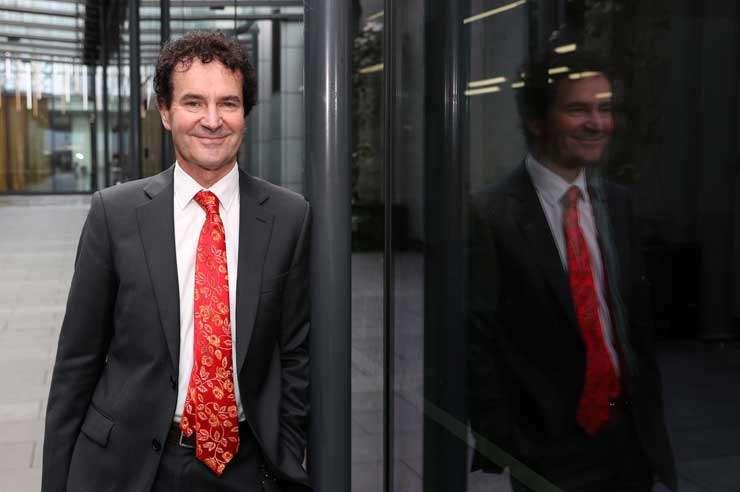Home-owners are set for more financial pain in 2022, with experts warning that interest rates will continue to rise steadily over the next 12 months.
Economist Tony Alexander says the biggest changes will be in the 12- to-18-month mortgage rates. “For the one-year fixed interest rate, you're probably looking at increases of one to one-and-a-half percent by the end of the year, because it's more closely tied to the Official Cash Rate, Alexander says.
Start your property search
“The others, the two-, three- and five-year rates, will still rise, but far less than last year. Markets have factored in that the cash rate will go to 2.5% eventually.”
At the start of October, the Reserve Bank, in an attempt to hold back inflation, raised the cash rate 0.25 percentage points to 0.5%, the first increase in the rate since 2014. It raised the rate again at the end of November, to 0.75%, and all eyes will be on the bank on February 23, when it’s due to announce its next decision on the rate.
The degree of pain for consumers can expect will depend on how much of a problem inflation proves to be, with most commentators expect a series of 0.25 percentage point rises in the rate over the course of the year.
Uncertainty is high, says Alexander. “We haven't had a sustained monetary policy tightening cycle like this since 2005 to 2008. The Reserve Bank will be running a ‘suck it up’ exercise.” That means hiking rates to counter inflation and watching what happens, he says.
Covid is the first wild card, says Alexander. “Once we get Omicron in New Zealand, you couldn't rule out the Reserve Bank, again, delaying a rate increase.
Behind the curve
“Second, would be at what speed does the bank switch from being in the ‘inflation is transitory’ camp to ‘there are permanent elements of this inflation here’. Central banks overseas have increasingly in the past three months shifted into ‘there’s some permanence about all of this’. Our central bank is yet to do that move.”
However, the RBNZ may choose to give the markets a sudden shock this year, says Alexander. “Either with statements, or the magnitude of an OCR change. Shocking the market is the tool at its disposal that it hasn't used it for a while.”

Tony Alexander says the Reserve Bank may use “shock tactics” in 2022. Photo / Fiona Goodall
He adds: "They are behind the curve. They've lost a lot of credibility, or over the past year, in particular, I would suggest, so I think they'll just be looking to sort of reassert some, some control over the market.”
Nick Tuffley, ASB chief economist, predicts the OCR will rise to 2% by the end of the year. Inflation is the key issue. “Inflation is likely to be fairly sustained. So not just the short-term jump, mainly due to what's been happening with the supply chain issues. But more prolonged pressures from labour markets and construction costs.”
Like others Tuffley says expected OCR rises are already built into many of the fixed term mortgage rates, which “galloped away” last year. Two-year fixed mortgage rates rose from 3.5% in June 2021 to 4.7% in November 2021. “We'd expect to see there'll be further creep up in the term rates. But from where we are, now, we've got a fair amount built in ahead of the upcoming interest rate increases. We expect gradual lifts in term rates over the year. But there'll be a lot more movement in the floating rates, and very short-term fixed rates such as six to 12 months rates.”
US effect
The big difference for mortgage interest rates in 2022, says Infometrics chief economist Brad Olsen, will be how the United States reacts to issues such as inflation and what that means for global interest rates. That will have a flow-on effect for New Zealand’s economy.
The US Federal Reserve is no longer thinking inflation is temporary, says Olsen. The Fed is now thinking otherwise and acting on those feelings by tapering its bond buying and is likely to raise interest rates up to three times this year.
“The Reserve Bank is signalling the potential for perhaps six rates rises this year, if we continue to see those inflationary pressures, which are building,” he says.
“We've seen a very rapid increase in interest rates over the last few months and 2021. We're expecting to see interest rates continue to trick upwards fairly swiftly in 2022.”

Infometrics chief economist Brad Olsen says inflation will be key to how many rate rises there are this year. Photo / Tania White
The big issue for home buyers, says Olsen, could be access to loans, not increasing interest rates. The credit crunch is being driven by regulation including changes to the Credit Contracts and Consumer Finance Act (CCCFA), the possibly of more banks introducing debt to income ratio (DTI) restrictions, and/or the RBNZ mandating them.
Alexander says some home-buyers and owners could be shocked by mortgage rate increases this year if they have no knowledge of where interest rates have been prior to 2019, even though they’ve been warned.
“Anybody who's taken out a mortgage over the past decade, has had the bank work out their ability to pay at an interest rate, 3% higher than they were actually paying,” says Alexander.
While the public sees their mortgage repayments increasing, the reality, says Alexander, is that current interest rates are far removed from the extraordinary interest rate environment that existed in 1980s when rates of 20% were common. "They [have been] on the low side since then.”



















































































